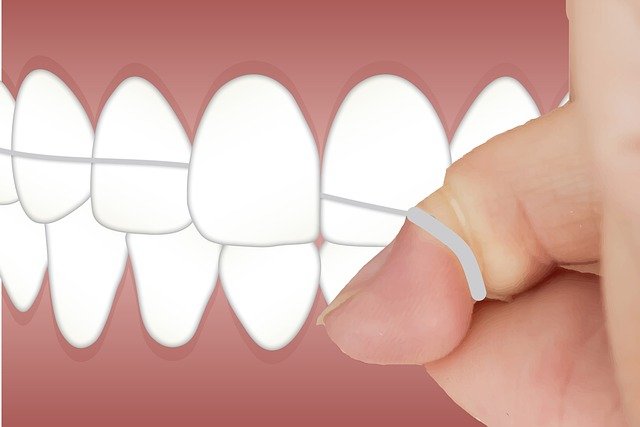Oral and dental hygiene besides mouth washing and teeth brushing, also considers flossing, although most people skip this step in their daily routine. However, flossing is more important than most people think regarding maintaining good oral health. To better understand the significance and benefits of flossing, Dental implants Harrisburg NC doctors have provided us with a comprehensive article that will uncover all advantages of flossing.
Flossing is the quick process of cleaning the space between the teeth with dental floss. However, even though this extra effort that should precede teeth brushing doesn`t require much time, only 16% of respondents have declared they floss once a day, while most of subjected study participants responded they do floss but only when food pieces are stuck between their teeth.
Even though brushing teeth is necessary, teeth brushing is most efficient for cleaning teeth surfaces while is less effective for cleaning the space between teeth. Without flossing, this area stays with food leftovers. Therefore, tooth brushing and flossing can not replace one another, but rather complement each other.
- Flossing prevents plaque and tartar
Plaque is a bacterial film that forms around the teeth and when builds up it creates dental tartar. Plaque compromises teeth and gum health.
The presents of bacteria can cause an infection that results in gum bleeding, swelling, and gingivitis. However, having healthy gums is far more important than just considering teeth health. The bacteria accumulation in gums can travel throughout the bloodstream to other parts of the body and cause different infections.
Build-up plaque can harden creating tartar which significantly increases the risk of gum disease. As the tartar can expand under the gums and around teeth root, it can cause the breakage of the bone that supports the tooth.
Regular flossing removes plagues before it hardens into tartar, reflecting the long-term effect of flossing on teeth and gums healthy.
- Flossing reduces the risk of cavities
A cavity is the result of bacteria activity on the tooth surface. Removing the bacteria film between the teeth reduces the opportunity for remaining bacteria which can cause tooth decay and cavity.
Even if you have thoroughly brushed your teeth, food particles can get stuck in places you can not see or reach with your toothbrush, which means that those residues will remain and cause an increase in bacteria.
- Flossing prevents periodontitis
Gingivitis is considered an early stage of gum disease known as periodontitis. As gingivitis causes bleeding gums, you might notice blood spots when brushing and flossing. However, a more serious condition can result from gingivitis. Gingivitis can lead to receding and pulling down the gums, which causes a lack of tooth bone support and a loose tooth.
Flossing gets rid of hidden food particles and the possibility of bacterial multiplication which can cause gum disease and tooth loss.
- Flossing reduces the bad breath
The bad breath occurrence is also known as halitosis. Flossing is very effective in reducing smelly breath as it removes food debris between the teeth that start to decay and odor when trapped in space between teeth.
Additionally, food particles stuck between teeth cause plaque, cavity, and teeth enamel erosion and decay which greatly contributes to foul-smelling breath.
- Flossing donates to heart health
Oral health is linked to heart health. It is shown that people with cavities, decaying teeth, and gum disease more often suffer from strokes. On the other hand, people that have high standards in their oral hygiene have a lower risk of heart failure and atrial fibrillation.
- Flossing helps diabetes patients
People who suffer from diabetes often face gum diseases. High blood sugar, aka diabetes, affects the entire body including gums and teeth. Flossing helps people with diabetes to reduce the risk and occurrence of gum conditions and can even help diabetics easily manage their blood sugar levels.
- Flossing helps patients with arthritis
Some studies show that patients with arthritis tend to have gum disease more often than those without arthritis. The statistic shows that the risks of gum disease for arthritis patients are even eight times higher. This connection between arthritis and increased odds of gum disease is not fully explained, but the assumptions are that the common factor is inflammatory.
- Flossing is cheaper than oral surgery
Even though floss prices vary depending on brand and type, the costs of regular flossing are much cheaper than having to pay for oral surgent.
Flossing has a beneficial effect on preventing numerous teeth and gum conditions that can delay the costs of removing tartar, tooth repair, and tooth treatments.
Summary
The mentioned reasons are sufficient to make everyone reconsider their oral hygiene which doesn`t include flossing. However, we shall end this article with one more argument that will hit the rock about flossing efficiency and importance: flossing takes away approximately 40% of bacteria that tooth brushing can not reach and clean.


























